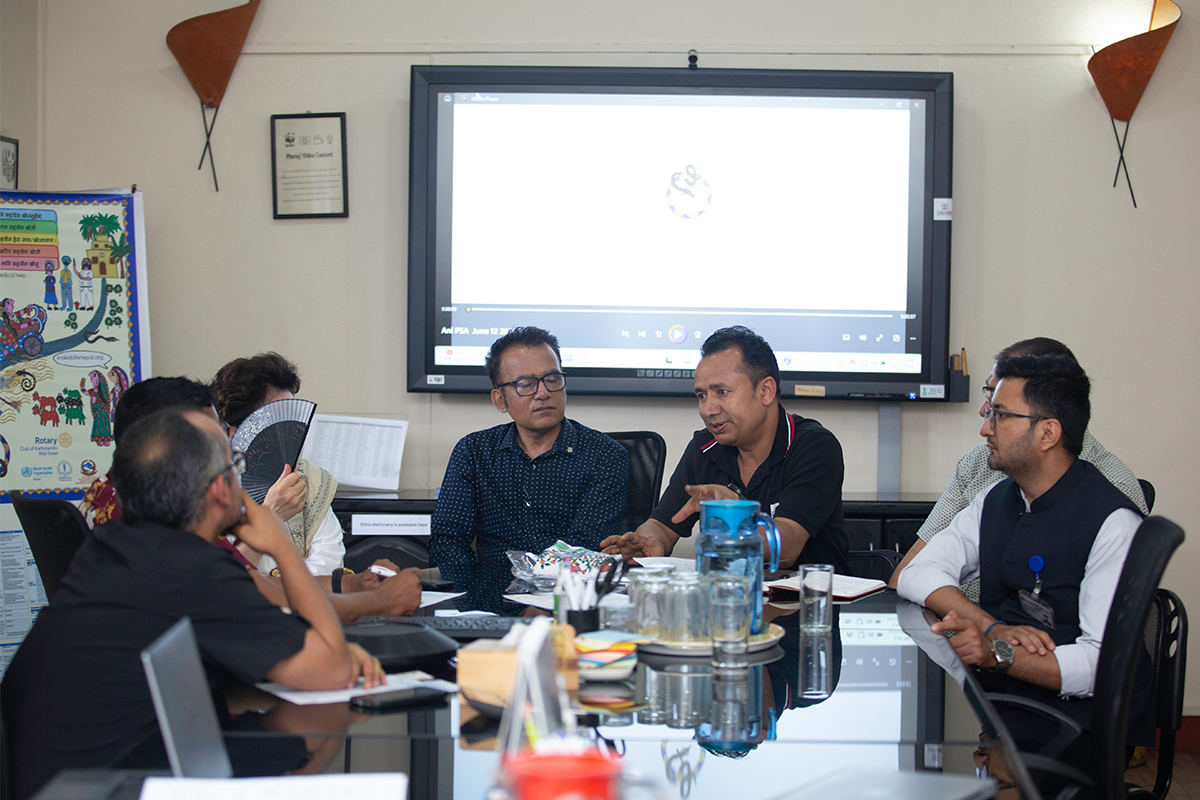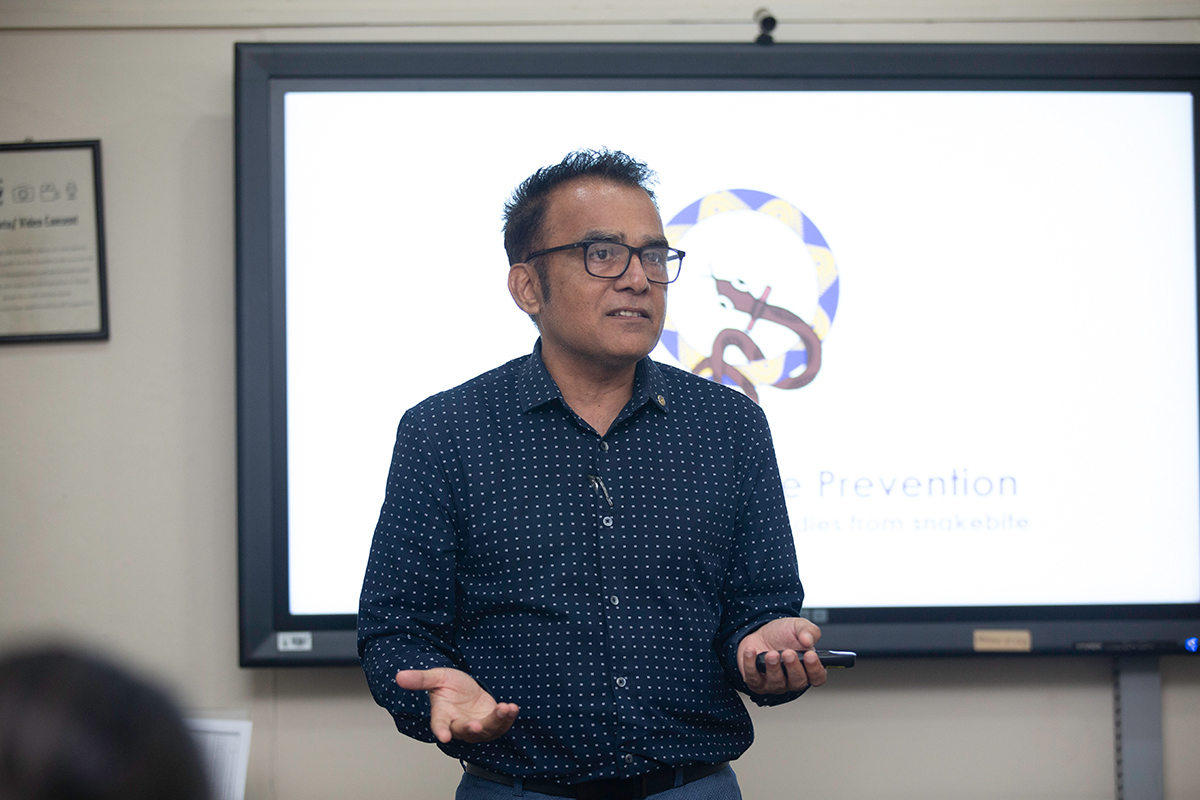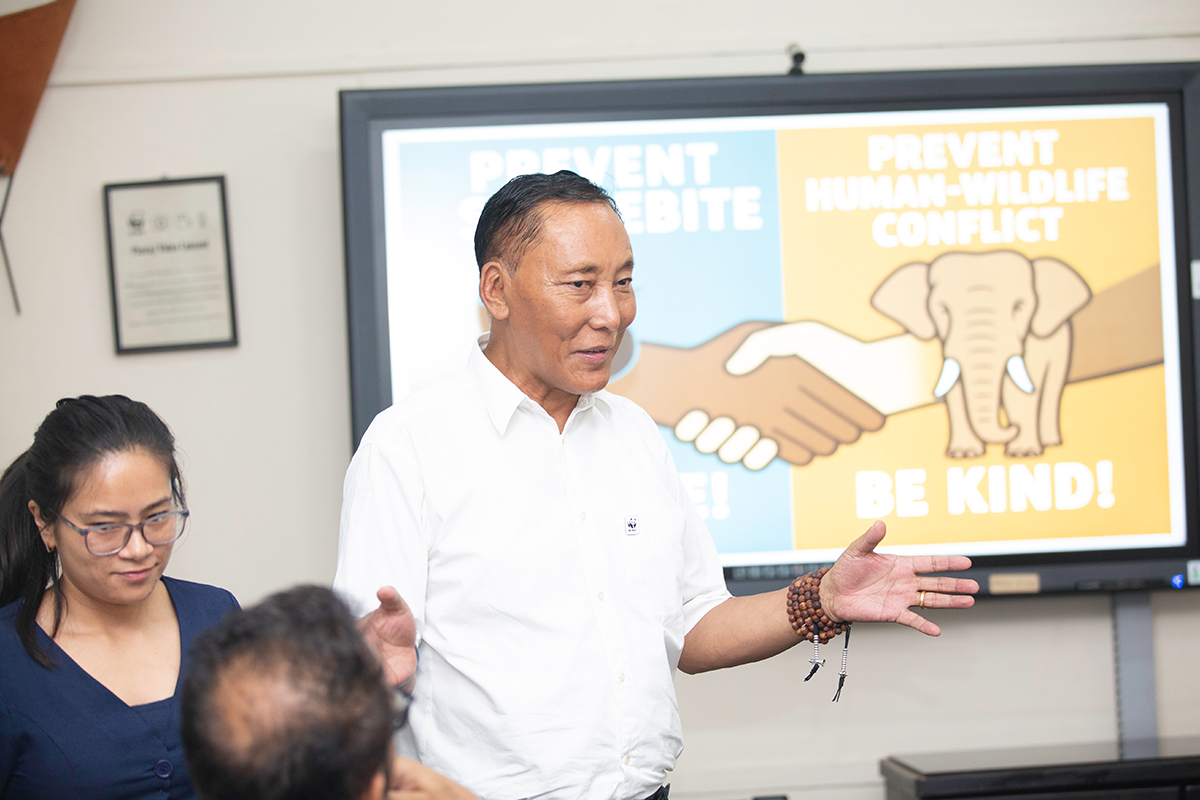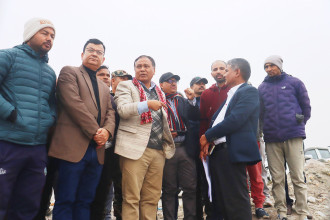
KATHMANDU: The Rotary Foundation and Nepal Medical Association gathered the press for “Snake Bite Prevention” – a series of presentations on June 12.

Funded by The Rotary Foundation and led by Isabella C. Bassignana Khadka, in partnership with World Wildlife Fund (WWF), World Health Organisation (WHO), Nepal Medical Association, BP Koirala Snake Bite Center, and the Ministry of Health and Population, a website www.snakebitenepal.org, is now available in Nepali, Tharu, Awadhi, Bhojpuri, English and Maithili languages. The website lists nearest destinations for treatment because death from snakebites is preventable.
Concurrent to the website, this campaign adds 11 different public service announcements over the radio that reach rural communities, posters, social media promotion, radio discussion programs, in-person sessions, and a YouTube video released today (featuring Ani Choying Drolma). The campaign encourages people to stay away from snakes, sleep above the ground, and sleep under a mosquito net. While walking through tall grass, people are encouraged to carry a flashlight and a stick to tap on the ground to keep snakes away.

Nirmal Rijal, former President of Rotary Foundation, shared while its relatively rare to encounter a snake in Kathmandu, farmers, and people living in structures without proper boundaries are far more likely to encounter snakes in their daily lives.
The Rotary Foundation’s four-year campaign for public awareness and snakebite prevention’s vision is “A Nepal where no one dies from snakebite”, starting with reducing snakebite mortality by 50% by 2030.
Biologists, doctors, and researchers convened to answer questions on prevention of snakebite. The session was intended for INGOs, NGOs, and Kathmandu residents working with groups in the Terai belt at risk of snakebite. Current data says 40,000 people were bitten by snakes last year, with 3000 reported deaths.

Ghana Shyam Gurung, speaking exclusively to Business 360, said, “Snakes are critical part of the ecosystem, but people are generally scared of snakes. People aren’t aware of venomous and non-venomous snake species. The Rotary Foundation is doing a great job protecting the lives of marginal people living in farming lands. For us conservationists, the loss of life to any animal attack is equally devastating. Snake attacks, somehow, aren’t as discussed as preventable compared to attacks from tigers or elephants. Prevention is possible, because a snake attacks when threatened or when it considers the victim to be prey. Awareness campaigns like this are key.”
“Prevent human-wildlife conflict, prevent snakebite” was the overarching message from the series of presentations and subsequent discussions.






